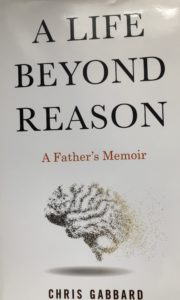
Assistant Professor of English Brenta Blevins
A book chapter by Brenta Blevins, Assistant Professor of English, was recently published in Modern Language Association’s Writing Changes: Alphabetic Text and Multimodal Composition, a collection edited by Pegeen Reichert Powell.
Blevins’ chapter, “Of Writing and the Future: An Essay on Augmented Reality Composition,” makes the point that Augmented Reality (AR) not only incorporates but depends upon traditional alphabetic literacy. That link between traditional and emerging literacy practices suggests prior knowledge can aid those composing in unfamiliar media, including in media that do not yet exist. This chapter further argues that contemporary AR functions within essayistic traditions begun hundreds of years ago with Michel de Montaigne.








